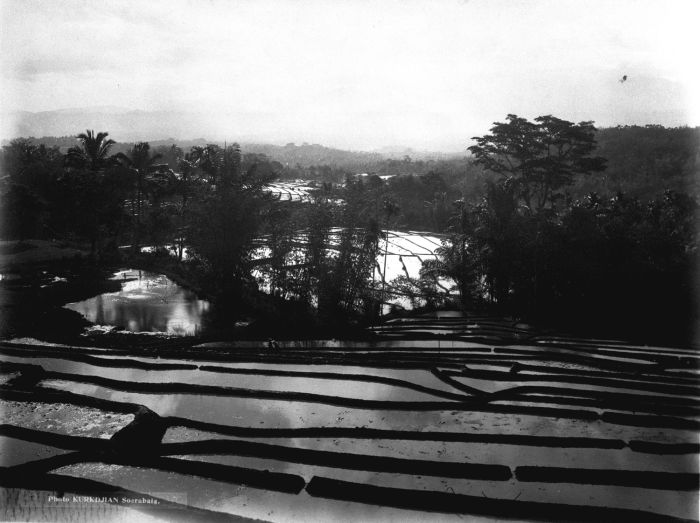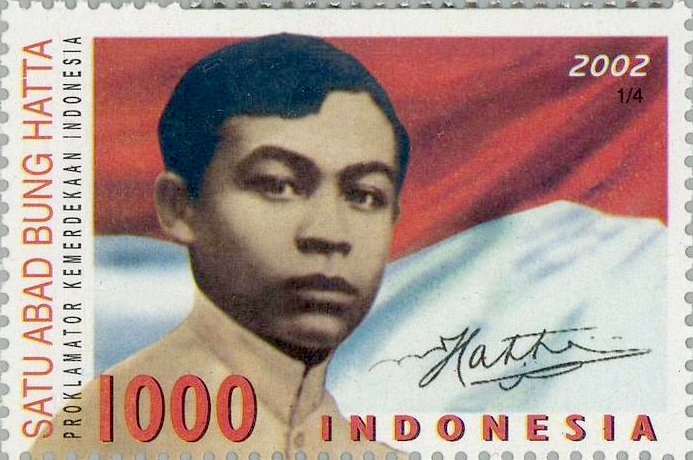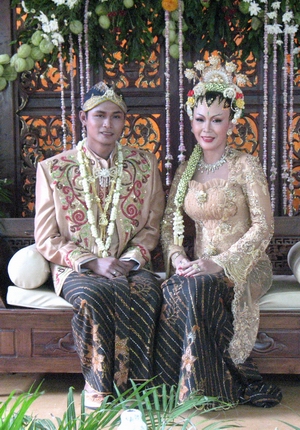|
Achmad Soebardjo
Achmad Soebardjo Djojoadisoerjo (23 March 1896 – 15 December 1978) was a diplomat, one of Indonesia's founding fathers, and an Indonesian national hero. He was the first Foreign Minister of Indonesia. In 1933, he received the degree '' Meester in de Rechten'' from Leiden University, Netherlands. Early life Achmad Soebardjo was born in Teluk Jambe, Karawang Regency, West Java, on 23 March 1896. His father was Teuku Muhammad Yusuf, an Acehnese patrician from Pidie. His paternal grandfather was an ulama and his father was the chief of police in Teluk Jambe, Karawang. His mother was Wardinah. She was of Javanese- Buginese descent, from ''Camat'' in Telukagung, Cirebon. Initially, his father gave him the name Teuku Abdul Manaf, but his mother gave him the name Achmad Subardjo. Djojoadisoerjo was added by himself after he was arrested and imprisoned in Ponorogo Prison because of his involvement with the " July 3, 1946 Incident". He studied at Hogere Burgerschool Jakarta in 19 ... [...More Info...] [...Related Items...] OR: [Wikipedia] [Google] [Baidu] |
Master Of Laws
A Master of Laws (M.L. or LL.M.; Latin: ' or ') is an advanced postgraduate academic degree, pursued by those either holding an undergraduate academic law degree, a professional law degree, or an undergraduate degree in a related subject. In most jurisdictions, the "Master of Laws" is the advanced professional degree for those usually already admitted into legal practice. Background on legal education in common law countries To become a lawyer and practice law in most states and countries, a person must first obtain a law degree. While in most common law countries a Bachelor of Laws (LL.B.) is required, the U.S. generally require a professional doctorate, or Juris Doctor, to practice law. The Juris Doctor (J.D.) is a professional doctorate Under "Data notes" this article mentions that the J.D. is a professional doctorate.. Under "other references" differences between academic and professional doctorates, and contains a statement that the J.D. is a professional doctorate Repo ... [...More Info...] [...Related Items...] OR: [Wikipedia] [Google] [Baidu] |
West Java
West Java ( id, Jawa Barat, su, ᮏᮝ ᮊᮥᮜᮧᮔ᮪, romanized ''Jawa Kulon'') is a province of Indonesia on the western part of the island of Java, with its provincial capital in Bandung. West Java is bordered by the province of Banten and the country's capital region of Jakarta to the west, the Java Sea to the north, the province of Central Java to the east and the Indian Ocean to the south. With Banten, this province is the native homeland of the Sundanese people, the second-largest ethnic group in Indonesia. West Java was one of the first eight provinces of Indonesia formed following the country's independence proclamation and was later legally re-established on 14 July 1950. In 1966, the city of Jakarta was split off from West Java as a 'special capital region' (), with a status equivalent to that of a province, while in 2000 the western parts of the province were in turn split away to form a separate Banten province. Even following these split-offs, West Java ... [...More Info...] [...Related Items...] OR: [Wikipedia] [Google] [Baidu] |
Mohammad Hatta
Mohammad Hatta (; 12 August 1902 – 14 March 1980) was an Indonesian statesman and nationalist who served as the country's first vice president. Known as "The Proclamator", he and a number of Indonesians, including the first president of Indonesia, Soekarno, fought for the independence of Indonesia from the Dutch. Hatta was born in Fort de Kock, Dutch East Indies (now Bukittinggi, Indonesia). After his early education, he studied in Dutch schools in the Dutch East Indies and studied in the Netherlands from 1921 until 1932. Early life, family, and early education Early life and family Hatta was born in Fort De Kock (now known as Bukittinggi) on 12 August 1902 into a prominent and strongly Islamic family. His grandfather, Sheikh Abdurrahman, was a respected Naqshbandi- Khalidi murshid in Batuhampar, near Payakumbuh. His father, Haji Mohammad Djamil, died when he was eight months old and he was left with his six sisters and his mother. As in the matrilineal society of ... [...More Info...] [...Related Items...] OR: [Wikipedia] [Google] [Baidu] |
Perhimpoenan Indonesia
The Perhimpoenan Indonesia (PI) (Eng: Indonesian Association; Dutch: Indonesische Vereniging) was an association for Indonesian students in the Netherlands in the first half of the twentieth century. It was established under the Dutch name ''Indische Vereeniging'' (Indies' Association), and it changed its name to ''Indonesische Vereeniging'' (Indonesian Association) in 1922, and its Malay translation ''Perhimpoenan Indonesia'' in 1925. Although small in membership numbers - throughout the period between 30 and 150 members - the organization was important because it was one of the first to campaign for full Indonesian independence from the Netherlands, and because many PI-students would later acquire prominent political positions in the independent state of Indonesia. History The Perhimpoenan Indonesia was established in 1908 under the name of Indische Vereeniging and was initially a social club, providing a sociable environment for students from the Netherlands East Indies in the N ... [...More Info...] [...Related Items...] OR: [Wikipedia] [Google] [Baidu] |
Jong Java
, was a Dutch East Indies youth organization founded on March 7, 1915 by at the STOVIA building under the name Tri Koro Dharmo ('Three Noble Goals'). It was founded in response to the perceived elitism of the Budi Utomo movement by many young people at the time. Three Noble Goals Tri Koro Dharmo 3 Goals are Sakti, Budi, Bakti (Power and intelligence, wise and affection). History 1915–1921 Tri Koro Dharmo was founded with Dr. Satiman Wirjosandjojo as chairman, Wongsonegoro as vice chairman, Sutomo as secretary, and Muslich, Mosodo and Abdul Rahman as members. The goals of Tri Koro Dharmo were to unite the ''pribumi'' students, promote the arts and national language, and improve the general knowledge of its members. To achieve these goals, their activities included organizing meetings and courses, establishing scholarship funds, organizing art performances, and publishing the magazine ''Tri Koro Dharmo''. On June 12, 1918, Tri Koro Dharmo was renamed to Jong Java dur ... [...More Info...] [...Related Items...] OR: [Wikipedia] [Google] [Baidu] |
Indonesian Independence
The Proclamation of Indonesian Independence ( id, Proklamasi Kemerdekaan Indonesia, or simply ''Proklamasi'') was read at 10:00 on Friday, 17 August 1945 in Jakarta. The declaration marked the start of the diplomatic and armed resistance of the Indonesian National Revolution, fighting against the forces of the Netherlands and pro-Dutch civilians, until the latter officially acknowledged Indonesia's independence in 1949. The document was signed by Sukarno (who signed his name "Soekarno" using the Van Ophuijsen Spelling System, Van Ophuijsen orthography) and Mohammad Hatta, who were appointed president and vice-president respectively the following day. The date of the Proclamation of Indonesian Independence was made a Public holidays in Indonesia, public holiday by a government decree issued on 18 June 1946. Background The beginnings of the independence movement In 1918, the Dutch authorities in the Dutch East Indies established a partly-elected People's Council, the ''Volksraad ... [...More Info...] [...Related Items...] OR: [Wikipedia] [Google] [Baidu] |
July 3, 1946 Incident
The 3 July Affair in 1946 was a political upheaval in the then newly formed Republic of Indonesia. The Prime Minister, Sutan Sjahrir, was kidnapped by factions within the military opposing the Republic’s negotiations with the Dutch during the Indonesian National Revolution. It ended with the release of Sjahrir and a re-structure of both the Republican government and the army. Events Following Allied occupation of Jakarta, Indonesian Republicans moved their capital to the city of Yogyakarta exposing armed units in the city to civilian political intrigue. President Sukarno’s decision to commence negotiations with the Dutch was opposed by various Indonesian factions, which formed into the ‘’ Persatoean Perdjoangan’’ (“Union of Struggle”) group led by communist, Tan Malaka. Persatoean Perdjoangan’s opposition to negotiation with the Dutch received sympathy from many sections of the armed forces, including its commander Sudirman and Major-General Sudarsono. On 2 ... [...More Info...] [...Related Items...] OR: [Wikipedia] [Google] [Baidu] |
Ponorogo
Ponorogo Regency ( id, Kabupaten Ponorogo; jv, ꦑꦧꦸꦥꦠꦺꦤ꧀ꦦꦤꦫꦒ, translit=Kabupatèn Pånårågå) is a regency (''kabupaten'') of East Java, Indonesia. It is considered the birthplace of Reog Ponorogo, a traditional Indonesian dance form. The regency covers an area of , and it had a population of 855,281 at the 2010 census and 949,318 at the 2020 census; the official estimate as at mid 2021 was 955,839. The capital of the ''kabupaten'' is the local town of Ponorogo located around south of the main East Java city of Madiun and south Ngawi Geography Ponorogo Regency is located in the southwestern part of the province of East Java on the border with Central Java province. It lies approximately south-west of Surabaya, the provincial capital of East Java. The regency lies between above sea level and covers an area of about . History According to the Babad Ponorogo history, Ponorogo was founded when Bathoro Katong conquered the Wengker region. This ... [...More Info...] [...Related Items...] OR: [Wikipedia] [Google] [Baidu] |
Cirebon
Cirebon (, formerly rendered Cheribon or Chirebon in English) is a port city on the northern coast of the Indonesian island of Java. It is the only coastal city of West Java, located about 40 km west of the provincial border with Central Java, approximately east of Jakarta, at . It had a population of 296,389 at the 2010 census and 333,303 at the 2020 census. The built-up area of Cirebon reaches out from the city and into the surrounding regency of the same name; the official metropolitan area encompasses this regency as well as the city, and covers an area of , with a 2010 census population of 2,363,585; the 2020 census total was 2,603,924. Straddling the border between West and Central Java, Cirebon's history has been influenced by both Sundanese and Javanese culture as well as Arab and Chinese, and is the seat of a former Sultanate. Etymology Being on the border of Sundanese (i.e., Western Java) and Javanese (i.e., Central Java) cultural regions, many of Cireb ... [...More Info...] [...Related Items...] OR: [Wikipedia] [Google] [Baidu] |
Bugis
The Bugis people (pronounced ), also known as Buginese, are an ethnicity—the most numerous of the three major linguistic and ethnic groups of South Sulawesi (the others being Makassar and Toraja), in the south-western province of Sulawesi, third-largest island of Indonesia. The Bugis in 1605 converted to Islam from Animism. The main religion embraced by the Bugis is Islam, with a small minority adhering to Christianity or a pre-Islamic indigenous belief called ''Tolotang''. Despite the population numbering only around six million, the Bugis are influential in the politics in modern Indonesia, and historically influential on the Malay peninsula, Sumatra, Borneo, Lesser Sunda Islands and other parts of the archipelago where they have migrated, starting in the late seventeenth century. The third president of Indonesia, B. J. Habibie, and a former vice president of Indonesia, Jusuf Kalla, are Bugis. In Malaysia, the former prime minister Muhyiddin Yassin has Bugis ancestry. ... [...More Info...] [...Related Items...] OR: [Wikipedia] [Google] [Baidu] |
Javanese People
The Javanese ( id, Orang Jawa; jv, ꦮꦺꦴꦁꦗꦮ, ''Wong Jawa'' ; , ''Tiyang Jawi'' ) are an ethnic group native to the central and eastern part of the Indonesian island of Java. With approximately 100 million people, Javanese people are the largest ethnic group in Indonesia and the whole Southeast Asia in general. Their native language is Javanese, it is the largest of the Austronesian languages in number of native speakers and also the largest regional language in Southeast Asia. The Javanese as the largest ethnic group in the region have dominated the historical, social, and political landscape in the past as well as in modern Indonesia and Southeast Asia. There are significant numbers of Javanese diaspora outside of central and eastern Java regions, including the other provinces of Indonesia, and also in another countries such as Suriname, Singapore, Malaysia, Egypt, Saudi Arabia, South Africa, Sri Lanka, Yemen and the Netherlands. The Javanese ethnic group ha ... [...More Info...] [...Related Items...] OR: [Wikipedia] [Google] [Baidu] |


